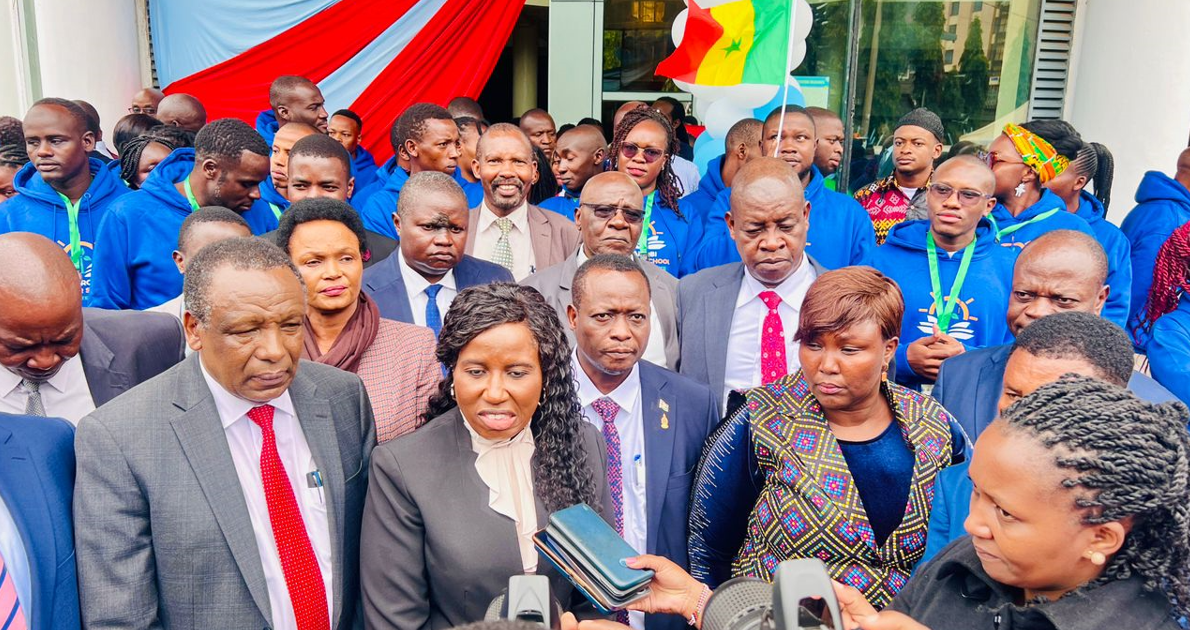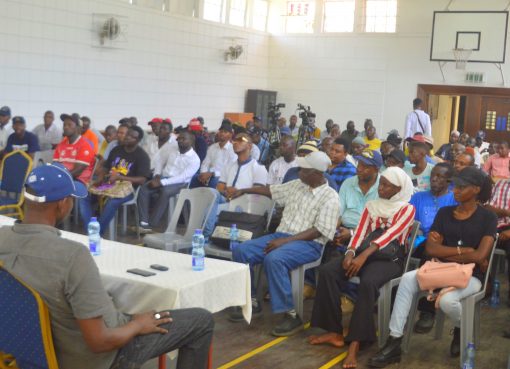The government is equipping the young generation with the requisite knowledge, skills and values to drive resilience and sustainable development in the wake of challenges posed by climate change phenomenon.
State Department for Higher Education and Research Principal Secretary Dr. Beatrice Inyangala has said the education curriculum, teacher training, research, innovation and community engagements are all part of integrating climate education including the science of climate change and the social dimensions of impacts of climate change.
Speaking during the official opening of the Nairobi Summer School on Climate Justice at Chuka University yesterday, Dr. Inyangala said the Ministry of Education is investing in the training of educators to effectively deliver knowledge, practical skills and technologies in climate adaptation, sustainability and resilience.
“Universities and research institutions are at the forefront of climate research, developing innovative solutions to mitigate and adapt to climate change.
We have adopted a whole-of-government approach to stimulate partnerships between schools, universities and local communities to implement practical projects that promote environmental conservation and climate resilience,” Dr. Inyangala said.
The Fourth Cohort of the annual Nairobi Summer School on Climate Justice has brought together a variety of climate justice actors, civil servants, diplomats, researchers and innovators, civil society, activists, scholars, community level activists, youth leaders and students majorly drawn from Africa, Latin America, USA, Europe and Asia representing over 87 countries in the world.
The International Symposium will engage the attendees in a two-week intensive training and discussion.
“It is gratifying to note that the youth are right at the center of this timely discussion, a discussion that focuses on their future in a world that is grappling with the impact of a climate crisis as well as other geo-political and socio-economic intricacies,” Dr. Inyangala said.
The PS noted that climate change is not only an environmental issue and that it is a matter of justice, equity and human rights acknowledging that impacts of climate change are being felt by countries which have contributed least to the problem particularly developing nations like Kenya.
She said that the country had made significant milestones, indicating that Kenya has over the years emerged as a leader in climate action both in Africa and globally.
“From prolonged drought, to unpredictable weather patterns, the effects of climate change are sadly very severe and have far reaching consequences on our livelihoods. Our commitment to sustainable development and environmental conversation cannot be over emphasized,” Dr Inyangala said.
The International Symposium hopes to tap into the potential of the youth voices, innovations and transformative solutions, embedded in emerging technologies to green the world and is a cornerstone for the drive for change, serving as an incubator for innovative ideas and interactive experiences that foster a deeper understanding of climate justice and inspire collective action.
Present at the ceremony included Jacqueline Amongin – Member of Parliament (East Africa Legislative Assembly), Azerbaijan’s Ambassador to Kenya, Sultan Hjiyev, Chuka University Vice Chancellor Prof Henry Mutembei and Pan African Climate Justice Alliance (PACJA) Executive Director Mithika Mwenda.
By David Mutwiri




